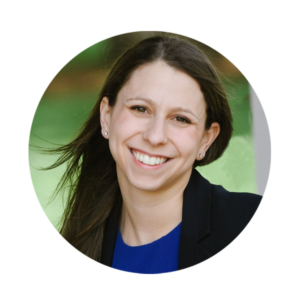Authors: AnaCristina Bedoya1, Jill Portnoy Donaghy2, and Dr Keri Wong3
1PhD student in Criminology and Criminal Justice, University of Massachusetts Lowell
2Criminologist and Vice Chair of the ASC Division of Biopsychosocial Criminology
3Associate Professor of Developmental Psychology, co-Director of the University College London (UCL) Centre for Education in Criminal Justice System
Most research on the relationships between children and their parents focuses on the effects parents and their parenting have on children and their behaviour. However, researchers are more and more recognising and studying the impact that children’s behaviour can have on the wellbeing of their parents, in turn further affecting children’s development.
Our research looked at the impact of different types of child behaviour on their parents during a particularly stressful time — the first year of COVID-19.
In an effort to slow the spread of COVID-19, countries around the world established movement restrictions and lockdowns. Many of us were confined to our homes.
For many parents, this meant spending more time at home with their children. They were often juggling work, parenting, and schooling. First-hand, many of us can attest to the negative consequences stay-at-home orders had for our relationships and stress levels. Our study explored whether different types of child behaviour at this time were linked to depressive symptoms, stress, and relationship conflict in their parents. We focused on aspects of wellbeing that may not necessarily meet thresholds for clinical diagnoses, but nonetheless can have substantial impacts on health and quality of life.
We wanted to see whether child behaviour at a certain point in time would affect parental wellbeing later. To do so, we examined the survey responses from the UCL-Penn Global Covid study (Wong & Raine, 2020) where participants from over 66 countries reported on their mental health over three time-points: from April 17, 2020, to 13 July 13 2020, October 17 2020 to 31 January 31 2021, and April 17 2021 to 31 July 2021. For this study specifically, we focused on parents who have young children from waves 1 and 2, with most responses coming from the UK and Greece. of 175 adults 80% female, and 79% of them were married too part. More than 83% had a bachelor’s degree or higher, and more than 90% of respondents were working or studying.
We focused on two different categories of child behaviour: externalising and internalising. Externalising behaviours include conduct problems (such as lying and stealing) and hyperactivity/inattention (such as restlessness). Internalising behaviours included emotional symptoms (such as worries) and peer problems (such as having few friends).
We found that child externalising behaviour during the first wave of the pandemic significantly predicted higher levels of parental stress during the second wave.
However, we also found that neither child externalising behaviour nor internalising behaviour during the first wave predicted parental depressive symptoms. Child internalising behaviour during the first wave also did not predict parental stress. Despite growing evidence to suggest that child behaviour affects parental wellbeing, especially family and marital conflict, we found that neither child externalising nor internalising behaviour were linked with relationship conflict for their parents.
However, we did find that parental depressive symptoms and stress were linked with relationship conflict.
Our study results do provide support for the notion that children’s behaviour can have an impact on parents’ wellbeing in times of disaster and uncertainty: behaviour from children, such as fighting, can make their parents more stressed. In fact, past research has found that children’s maladaptive behaviour can lead to marital conflict and dissatisfaction. Although we did not find links between marital conflict and child behaviour in our study, it is possible that stress linked to child externalising behaviour could have led to later marital conflict. Longer term follow up will be needed to test this possibility.
That being said, we did not further test how the behaviour of the children in our sample changed in response to changes to their parents’ wellbeing, specifically stress. But evidence from previous research suggests that child behaviour could change for the worse in response to their parents being stressed.
Now that we are three years removed from the start of the pandemic, it is important to reflect on the lessons learned in crisis management. Given the likelihood of another pandemic, it’s vital that we learn more about the impact of COVID and get ready in time for the next disaster.
Mental health provision and social support programmes targeting stress experienced by children and parents during times of disaster would be particularly helpful to families. While disasters are difficult to avoid, providing holistic support for families that focuses on the needs of both parents and children could buffer the immediate and long-lasting effects of crises and other stressful family events.
NB: The main research study UCL-Penn Global Covid Study, which is where the data is linked can be found at https://osf.io/fe8q7/
About the authors

AnaCristina Bedoya is a PhD student in criminology and criminal justice at the University of Massachusetts Lowell. She received her M.A. in criminal justice from the University of Massachusetts Lowell and her B.A. in psychology and neuroscience from Queens College. Her research interests include the development of misogynistic ideologies and coping mechanisms employed by survivors of sexual violence. AnaCristina has also been involved in a number of research projects exploring the biopsychosocial correlates of antisocial behavior in children and adolescents.

Jill Portnoy Donaghy is a criminologist whose research focuses on biological, psychological, social, and health-related risk factors for crime, aggression, and other antisocial behaviors. She is particularly interested in the effects of stress on a range of behaviors and wellness outcomes. Her work integrates insights and methods from multiple disciplines to identify causes and consequences of disruptive behavior that can be used to inform crime prevention policies. In 2018, she was awarded the Early Career Award from the American Society of Criminology’s (ASC) Division of Developmental and Life-Course Criminology. She currently serves as the Vice Chair of the ASC Division of Biopsychosocial Criminology. She received her Ph.D. in criminology from the University of Pennsylvania, M.Phil. in criminological research from the University of Cambridge as a Gates Cambridge Scholar, and B.A. in criminology and Hispanic studies from the University of Pennsylvania.

Keri Wong is an Associate Professor of Developmental Psychology, co-Director of the University College London (UCL) Centre for Education in Criminal Justice System, and podcast host of UCL’s Academia et al., a podcast for early career academics by early career academics. Trained as a developmental psychologist and criminologist she is interested in the causes of crime and schizophrenia-spectrum disorders. Prior to joining UCL Keri was the Betty Behrens Junior Research Fellow at the University of Cambridge, where she also received her PhD in Social and Developmental Psychology. She received her BA (Hons.) in Psychology and MA in Criminology from the University of Pennsylvania. Keri developed the first dimensional measure of childhood paranoia – Social Mistrust Scale – which is free to use and available in 8 languages.


